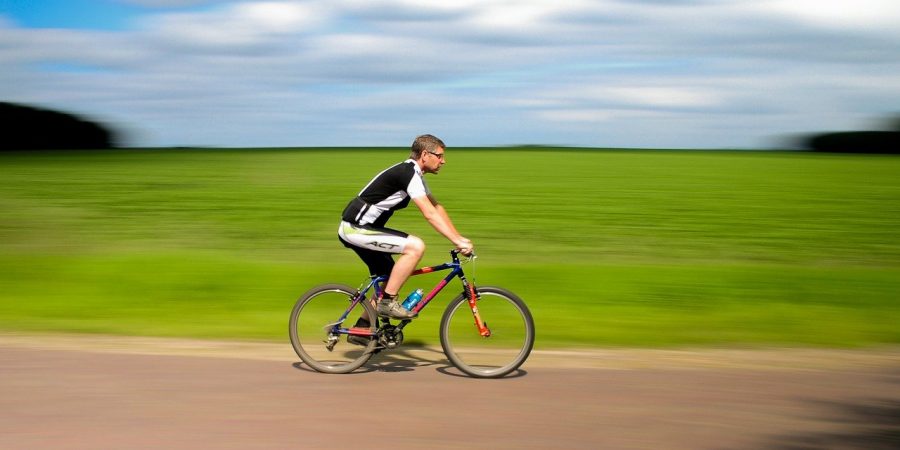We already know that cycling is one of the most sustainable methods of transport out there. In fact, studies show that cycling only accounts for five grams of CO2 emissions per kilometre ridden — more than ten times less than driving a car.
The recent cycling boom during the coronavirus pandemic has further emphasised the advantages of choosing your bike over your car, from health to environmental benefits.
But even then, the realisation of a climate emergency means that we’re still looking for more ways to reduce our environmental impact. Fortunately, we don’t need to look too far beyond our own bicycles to find a way to improve our sustainable practices.
Here, Leisure Lakes Bikes look at how you can recycle your cycling routine and boost your bike to a new level of sustainability.
The best bikes to buy
While any bike purchase is a positive step in the direction of sustainability, your choice can have a deeper impact. Some bicycle manufacturers progress this mission by ensuring that the materials used are ethically sourced and waste is reduced.
One strong example, Trek, attempt to increase their product sustainability through initiatives including green facilities, waste reduction, and restoration. Boasting that its manufacturing offices in Wisconsin have been powered by green energy since 2009, the company identifies that previously they had consumed 10.5 million pounds of coal every year. This has now reduced to zero.
Bicycle manufacturing must also consider volatile organic compounds (VOCs). These are emissions released by certain solids and liquids. VOCs may be released during painting, carbon layups, and cleaning machinery. Some bicycle manufacturers are reducing this impact by recycling carbon fibre for production and using precision robots to increase efficiency in painting.
In October 2020, Cannondale became the first bicycle brand to introduce packaging that is 100 per cent recyclable. After trialling the packaging in the Netherlands, the brand hopes to expand this strategy globally.
Electric boost to work
It’s a simple concept — but choosing your bicycle over your car will reduce your impact on the environment. However, there are situations when people feel they may not have this choice. This is significant when considering commuting to work.
Of the 26.5 million working people in the UK, 16.7 million people use a personal motorised vehicle to get to work. This is 63 per cent of all commuters — a huge majority. It is estimated that 10 billion kilograms of CO2 could be saved if more people walked, cycled, or even used public transport to get to work.
However, the commute to work may be too far for people to consider changing from petrol to the pedal. Fortunately, recent innovations in electric bicycles have made this option more appealing.
In the UK, an e bike can travel at 25 kilometres per hour, meaning that they are now a viable alternative to car travel. As the average commute in the UK is only 8.8 miles, this means that cycling to work may only take 34 minutes.
Compare this to the average UK commute time — 30 minutes — and the financial savings, health, and environmental benefits you gain from just four extra minutes of travel are certainly worth it.
Electric bikes are useful in these respects, but they also make cycling easier for beginners. Assisted cycling means that people only need to peddle to get the added boost from a motor, which is electrically charged. Electricity is, of course, a cleaner energy source than petrol. And as all UK houses are predicted to be powered by wind by 2030, the environmental impact of charging batteries is rapidly decreasing.
Save money to save the planet
Cycling is, as it should be, a win-win scenario for you and the planet. Not only can you reduce your environmental impact, but you can save money and benefit your health. These savings come from the removed cost of fuel, reduced cost of maintenance, and purchasing costs.
However, several schemes can reduce these costs further, and increasingly improve your savings. For example, the Green Commute Initiative is a cycle to work scheme. However, unlike most schemes, there is no upper limit on cost (usually £1000).
Cyclists have the option to pay for their bicycle from their gross (pre-tax) salary. Essentially, purchasing a bike this way means that you reduce how much tax you pay, therefore saving money. Most people report that they save 32 to 42 per cent on the retail prices buying bikes this way.
There is no shortage of these support schemes, but they offer another indication that cycling should be a priority for everyone.
Cycling is about creating a better world, and understanding that the choices we make, no matter how small, can have a huge impact on the environment and for people around us. While pushing the pedals may be a little harder than driving, new ethical strategies by companies and easier ways to cycle while saving money have made the choice to get on the saddle even easier.
Sources
https://ecf.com/news-and-events/news/how-much-co2-does-cycling-really-save
https://www.trekbikes.com/us/en_US/company/sustainability/green_facilities/
https://news.sky.com/story/average-commute-to-work-now-takes-59-minutes-tuc-study-11861773
https://www.bbc.co.uk/news/uk-politics-54421489
https://www.leisurelakesbikes.com/content/green-commute-initiative.aspx









